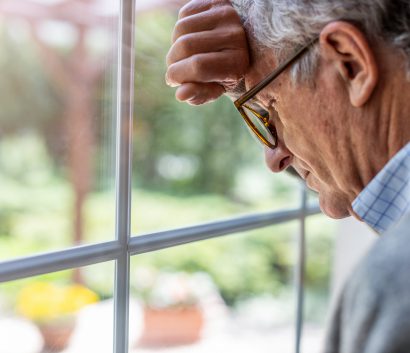Depression is a common mental health issue among older adults, affecting an estimated 6 million Americans aged 65 and older. Depression can significantly negatively impact the quality of life, including physical health, social functioning, and cognitive abilities. Older adults with depression are also at increased risk of developing other health conditions like heart disease and stroke. Strategies for Managing Depression in Older Adults
However, depression is treatable, and there are several strategies that older adults can use to manage their symptoms and improve their overall well-being. This article will explore some effective strategies for managing depression in older adults.
The strategies that will be discussed include medication and therapy, exercise and physical activity, social support and connection, diet and nutrition, and mindfulness and relaxation techniques. Each strategy can be used alone or with others to help manage depression and improve quality of life.
By learning about these strategies and incorporating them into their daily routine, older adults with depression can actively manage their mental health and enjoy a fulfilling life.
Medication and Therapy
Depression is a common mental health condition affecting older adults. It can cause sadness, hopelessness, and fatigue and may interfere with daily life. Fortunately, there are many effective strategies for managing depression in older adults, including medication and therapy.
Medication can be an effective treatment for depression in older adults. Antidepressants, such as selective serotonin reuptake inhibitors (SSRIs) and serotonin-norepinephrine reuptake inhibitors (SNRIs), can help regulate mood-related brain chemicals. However, it’s important to note that older adults may experience more side effects from these medications than younger adults. This is why working closely with a healthcare provider is important to determine the most appropriate medication and dosage for each individual.
Therapy is another important tool for managing depression in older adults. Cognitive-behavioral therapy (CBT) is a type of therapy that helps people identify and change negative thought patterns and behaviors that contribute to depression. Interpersonal therapy (IPT) focuses on improving relationships and communication skills to reduce symptoms of depression. CBT and IPT have been shown to treat depression in older adults effectively.
Exercise and Physical Activity
Depression in older adults can significantly negatively impact physical and mental health and overall quality of life. However, one effective way to manage depression is through regular exercise and physical activity. Studies have shown that exercise can be as effective as medication or therapy in treating depression, particularly in older adults.
There are many types of exercise and physical activity that can be effective in managing depression in older adults. Aerobic exercises like walking, jogging, or cycling are particularly effective. Strength training exercises, such as lifting weights or using resistance bands, can also be beneficial. Yoga, tai chi, and other mind-body exercises can help improve mood and reduce symptoms of depression.
It’sIt’s important for older adults to consult with a healthcare provider before beginning an exercise program, particularly if they have any underlying health conditions. Once cleared by a healthcare provider, older adults can start with small amounts of exercise and gradually work up to more intense workouts. Joining a fitness class or exercise group can also provide social support and encouragement, which can further enhance the mental health benefits of exercise.
Social Support and Connection
Depression can be a lonely experience, and feelings of isolation can exacerbate the condition. That’sThat’s why social support and connection are crucial for managing depression in older adults. Having a strong family, friends, and community support system can make all the difference in someone’ssomeone’s ability to cope with depression.
If you or a loved one are struggling with depression, there are several ways to build and maintain social connections. Consider joining a club or group that aligns with your interests, whether a book club, exercise group, or hobby group. Volunteering can also be a great way to meet new people while contributing to a cause you care about.
For those who may have difficulty getting out of the house, technology offers many options for staying connected with loved ones and engaging in social activities. Video calls, social media, and online support groups are just a few examples of how technology can be used to maintain social connections.
It’sIt’s important to remember that building and maintaining social connections takes effort and time, but the benefits are worth it. Not only can social support help manage depression, but it can also improve overall health and well-being. If you’re struggling with depression, don’t hesitate to contact loved ones and build a support system that works for you.
Diet and Nutrition
Depression is a complex condition that a variety of factors can cause. In addition to therapy and medication, diet and nutrition can play a role in managing depression, particularly in older adults. Research has shown that certain foods and nutrients can positively impact mood and may help reduce symptoms of depression.
Foods high in omega-3 fatty acids, such as fatty fish like salmon, tuna, and sardines, may be particularly beneficial. Omega-3s have anti-inflammatory properties and have been shown to improve brain function and reduce symptoms of depression. Additionally, foods high in vitamin D, such as fortified milk, cheese, and egg yolks, may be helpful. Vitamin D plays a crucial role in brain function, and low levels have been linked to depression.
It’sIt’s also important for older adults to maintain a healthy and balanced diet overall. Eating various fruits, vegetables, whole grains, lean protein, and healthy fats can give the body the nutrients it needs to function properly, positively impacting mood.
While no one “miracle” food can cure depression, incorporating these nutrient-rich foods into a balanced diet can be a valuable component of a holistic approach to managing depression in older adults. As always, it’s important to consult with a healthcare professional before making any major dietary changes.
Mindfulness and Relaxation Techniques
Depression can be a debilitating condition that affects older adults, impacting their quality of life and overall health outcomes. While medication and therapy are often the go-to treatments for depression, mindfulness, and relaxation techniques can also help manage symptoms. In this section, we will discuss the benefits of mindfulness and relaxation techniques for managing depression in older adults and provide examples of techniques that may be helpful.
Mindfulness involves being present at the moment and accepting things as they are, without judgment. It is effective in reducing symptoms of depression and anxiety. One way to practice mindfulness is meditation, which involves sitting quietly and focusing on your breath or a specific word or phrase. Another way to practice mindfulness is through mindful walking, which involves focusing on your footsteps and your breath as you walk.
Relaxation techniques can also help manage depression. One common relaxation technique is progressive muscle relaxation, which involves tensing and relaxing each muscle group in your body, starting with your toes and working your way up to your head. Another technique is deep breathing, which involves taking slow, deep breaths and focusing on your breath as you inhale and exhale.
Yoga is another relaxation technique that can be particularly helpful in managing depression in older adults. It combines mindfulness, deep breathing, and physical movement and effectively reduces symptoms of depression and anxiety.
Incorporating mindfulness and relaxation techniques into your daily routine can be a helpful addition to medication and therapy in managing depression. It is important to consult with your healthcare provider before beginning any new relaxation or mindfulness practices to ensure they are safe. Strategies for Managing Depression in Older Adults



Recent Comments